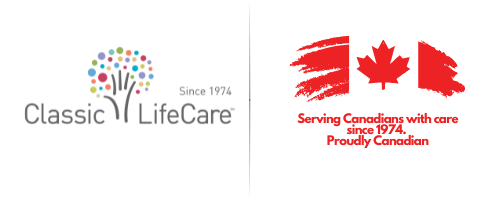Protecting Seniors During Extreme Hot Weather

“I don’t think that people take hot weather as seriously as they probably should.” This is what a senior environmental scientist with the BC Centre for Disease Control said in a recent interview with CBC. The scientist was commenting on the fact that British Columbia’sheat wave with record-setting temperatures. In fact, there were fears the early-August heat wave could match the deadly temperatures of 2009, when 110 more people died in Vancouver than would be seen in an average summer week in the region.
Part of the problem is that, living on the South Coast, we’re unused to such high temperatures, and we’re not prepared. Few homes have dedicated air conditioning, for one thing. We also don’t always understand how to prepare for hot weather, such as limiting outside activity, dressing properly, and drinking plenty of fluids.
And, of course, seniors are more vulnerable to this hot weather than other segments of the population.
Seniors and Heat
Seniors are particularly vulnerable when there’s a heat wave. Older people without access to shelter, shade or air conditioning at a higher risk of heat-related illness or death.
Seniors are vulnerable for a variety of reasons, including:
- The human body loses the ability to regulate temperature as it ages
- Older bodies have a delayed thirst response
- When a person becomes dehydrated, their blood thickens and it puts more stress on the heart
Basically, the heat puts stress on the body and it can knock people over the edge,” said Henderson.
“Staying cool is staying safe”
“Staying cool is staying safe,” according to Sarah Henderson, the senior environmental scientist with the BC Centre for Disease Control. Seniors should also avoid any sort strenuous activity while temperatures remain high.
Wear light, loose fitting clothing to keep cool. Besides water, drink tomato juice to replace potassium and sodium lost through sweating. And be sure to check in on friends, family and neighbours who are at risk or who live alone.
Temperatures Are Deceiving
While not used or understood much in Vancouver, the humidex (a Canadian invention), can help anticipate extreme hot weather. It combines the temperature and humidity levels into one value that shows the perceived temperature, or how the heat and humidity feels “to the average person.”
If the forecast cites a humidex of 40, for example, it means that the temperature might be 35 C but, with the humidity, the discomfort feels like it would at a dry temperature of 40 C.
The index is based on a calculation of heat and humidity by using current air temperature and the dew point (the temperature and barometric pressure at which water vapour condenses into liquid). It matters because humidity can wreak havoc on a body’s internal cooling systems.
Traditionally, the Ontario city of Windsor has earned the reputation as the humidex capital of Canada. It held the record of a humidex of 52.1 from June 20, 1953 for more than half a century until rural farming town in southern Manitoba, hit a humidex level of 53 on July 25, 2007.
Humidex Scale of Comfort
The humidex scale provides a useful guide for when temperatures go from being uncomfortable to outright dangerous.
- 20 to 29: Little to no discomfort
- 30 to 39: Some discomfort
- 40 to 45: Great discomfort; avoid exertion
- Above 45: Dangerous; heat stroke quite possible
Of course, someone with a health problem or the very young and elderly, they may feel more discomfort at a lower humidex value – at 35, for example, instead of 40.
Using the Canadian Humidex Calculator, you can actually determine how hot it’s actually going to be, based on temperature and humidity. For example, if it’s 30 degrees and 70% humidity, it’s going to feel like 41 degrees—a temperature where you’re advised to avoid exertion!
 The weather is expected to hover around 30 in Vancouver for most of the rest of the summer. According to the humidex scale, at those temperatures you can expect to experience “some discomfort.” However, don’t forget that the temperature forecast doesn’t reflect relative humidity… which is expected to be around 70% for Vancouver early in the month (the relative humidity in Victoria, across the water, is expected to remain at a low 50%).
The weather is expected to hover around 30 in Vancouver for most of the rest of the summer. According to the humidex scale, at those temperatures you can expect to experience “some discomfort.” However, don’t forget that the temperature forecast doesn’t reflect relative humidity… which is expected to be around 70% for Vancouver early in the month (the relative humidity in Victoria, across the water, is expected to remain at a low 50%).
How Seniors Can Cool Off In and Around Vancouver
While Lynn Canyon and Spanish Banks are popular places for younger people and families with kids to cool off, these sorts of outdoor locations aren’t always great for seniors. Just driving someplace outdoors can sap a lot of energy out of an older companion on a hot day.
However, there are still some ways to get out of a hot house:
- Your local library is air conditioned, and there are typically cafes close by for a cool drink
- The local mall is also a good place to escape the heat of the afternoon
- Take in a movie
- Go for a family swim at the pool
These are great ways to actually appreciate a heat wave that will end in just a few days.
